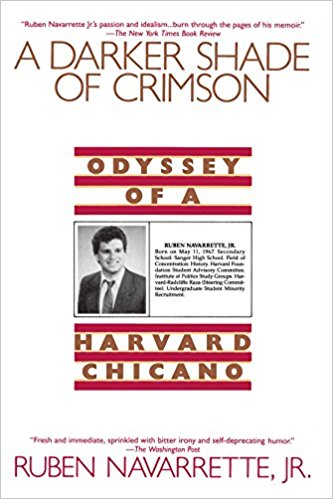My dear reader, let me tell you something you probably already know: Practice does not always make perfect. Many journalists write for a living, but that doesn’t mean all journalists are good writers.
Some are good reporters. Some are good observers. Some have a good handle on people. Some are good thinkers.
San Diego-based journalist Jean Guerrero is one heck of a good writer. Good enough, at 30, to have earned a master’s of fine arts in creative nonfiction, and have written for The Wall Street Journal from Mexico City. Good enough to have her critically acclaimed first book — “Crux: A Cross-Border Memoir” — published by Penguin/Random House, and see that labor of love win the 2016 PEN/Fusion Emerging Writers Prize.
And good enough to have started her book’s prologue with this grito:
“I’m sorry, Papi. Perdoname. I know how much you hate to be pursued. You’ve spent your whole life running. Now the footsteps chasing you are mine.”
I was hooked. What follows are pages and pages of smooth prose, painful introspection, smart analysis and deep self-awareness — coupled with a brazen airing of familial laundry.
As a reporter for public television, Guerrero’s day job has her covering the U.S.-Mexico border, and she has become an expert on timely yet thorny subjects like family separation and human trafficking.
From what I’ve seen, she knows how to find a story. But what makes her stand out, and makes the book worth the read, is her ability to tell that story.
As I was reading, I got a surprise. The book isn’t about what I thought it would be about. This “cross-border” memoir is not really about the border at all, as much as it is about a man who got crossways with those who loved him.
The U.S.-Mexico border is merely the stage for this play. The plot revolves around family. The drama between Guerrero, her parents and her younger sister spreads everywhere — including both sides of the border — like the contents of a spilled purse.
For Guerrero, the border is nothing more than a line scribbled in the dirt. Though she was born in San Diego, she sees herself as both “American” and “Mexican” — a citizen of both countries. Yet, until she moved to Mexico at 22, she didn’t speak Spanish, as she puts it, “beyond a child’s capacity.”
The lead role in this drama belongs to Marco Antonio Guerrero, Jean’s Mexican-born father, a hard worker with big dreams that were beaten down by a flurry of punches — bad choices, drug addiction, marital infidelity, mental illness. We all know someone like Marco — stuck between wanting to be a good husband and father, and realizing that those things are not within our capacity.
Jean has known her father all her life. Yet, writing this book allowed her to meet him for the first time.
“My father was always crossing borders,” Guerrero told me. “Between substance abuse and sobriety, between madness and sanity.”
The heroine of the story is undoubtedly Guerrero’s mother, and namesake, Puerto Rican-born Jeannette Del Valle, a physician who also maintained a home and raised two girls as a single mom without complaint. She loved Marco long after she reached the point where she couldn’t live with him, and feared for her daughters’ safety enough to ask him to leave. We all know someone like Jeannette — playing the rotten hand she was dealt while putting her children first.
Guerrero admits that she has, for most of her life, had an “unhealthy obsession” with discovering what made her father tick — even though he wasn’t around. Heck, probably because he wasn’t around.
Yet, ironically, it’s her mother who had the greatest influence on her life.
“The truth is my relationship with my mother is even more complicated than my relationship with my father, and I don’t think I could even begin to explore it through the page until I have children of my own,” she said.
“I discovered my feminism and the amazing strength of the women in my family — and myself — through my journey in pursuit of my father.”
And what other treasure did she find?
“I discovered that all my father ever wanted was to be heard,” she said. “So now, in my work, I naturally gravitate to people who want to be heard.”
No doubt, Guerrero finds a lot to gravitate to on the U.S.-Mexico border. And those hungry for a hearing are fortunate to have the ear of such a gifted storyteller.





